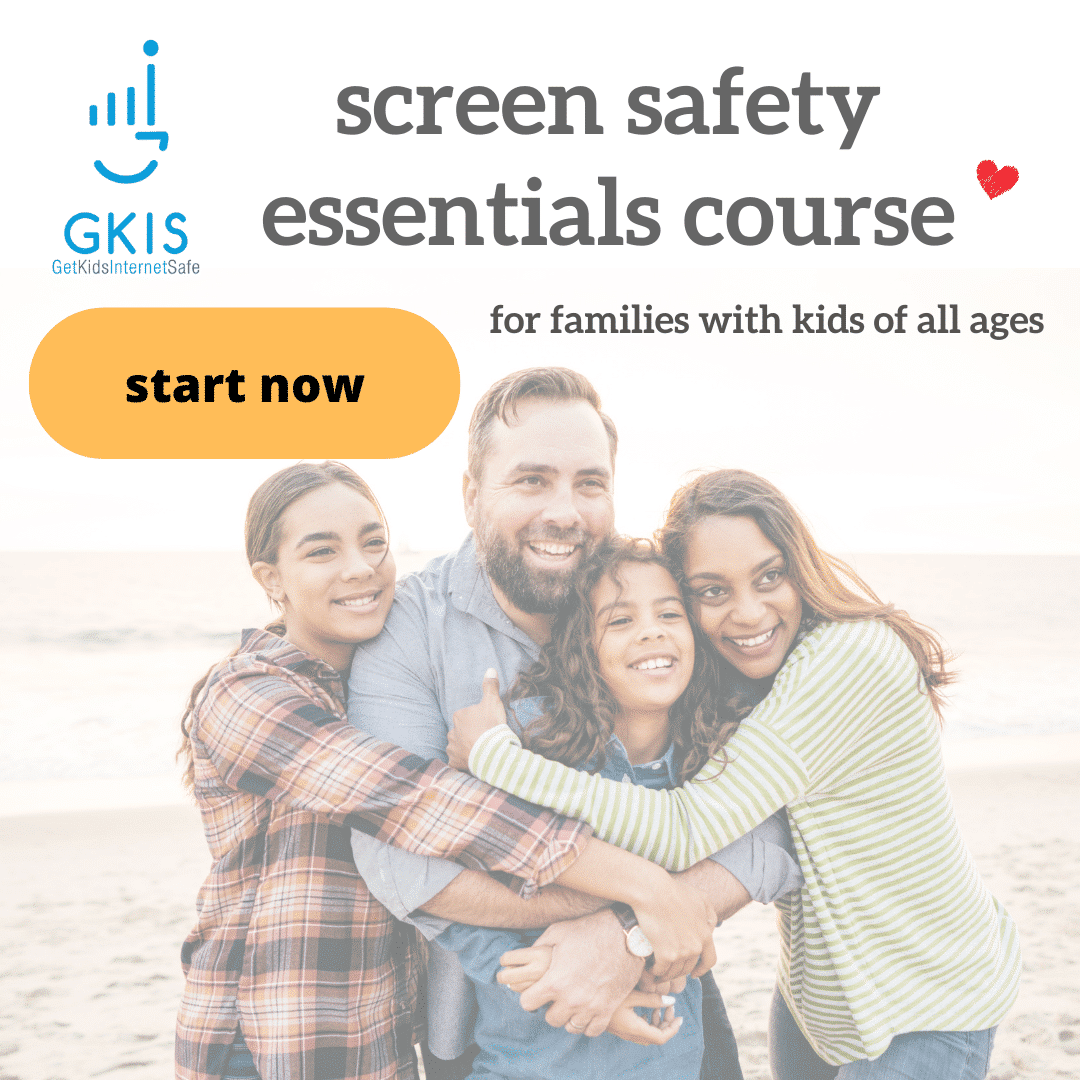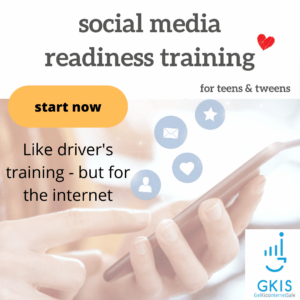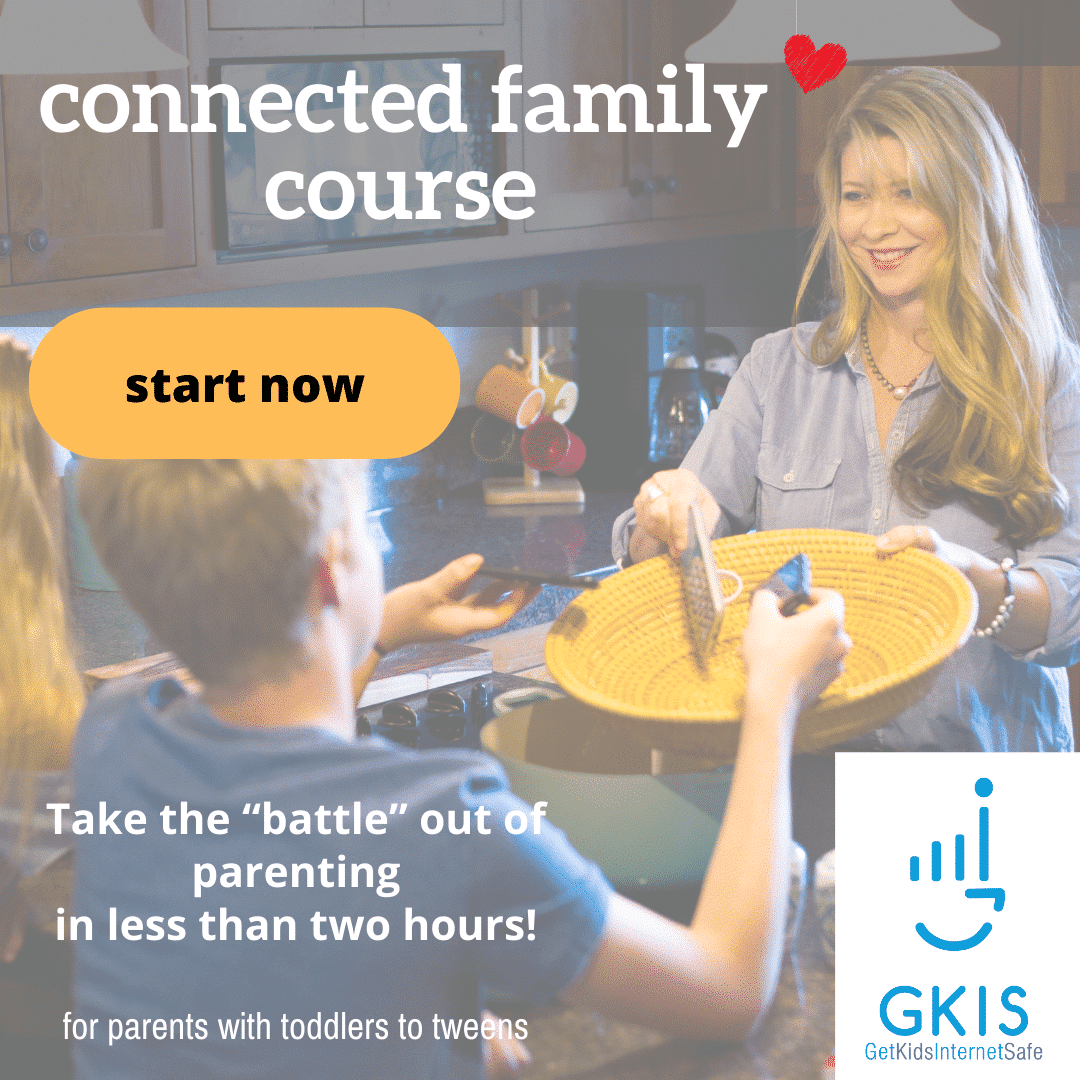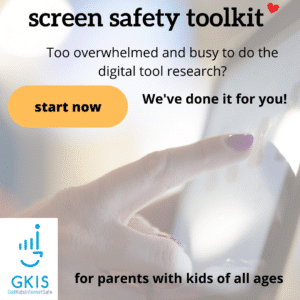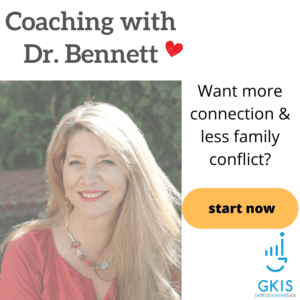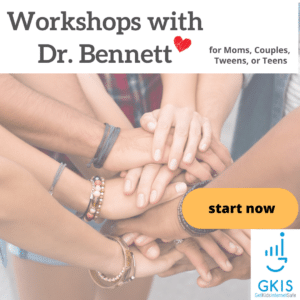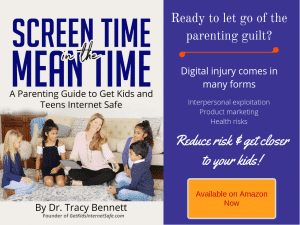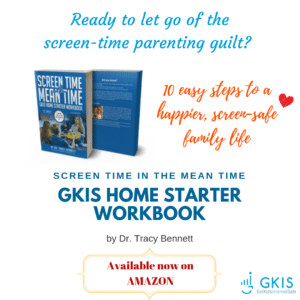
GetKidsInternetSafe offers online courses for parents to prevent digital injury and personal coaching with Dr. Bennett for families who want personalized intervention. However, sometimes parents don’t know what can happen as the result of screen use. Kaitlin is a beloved GKIS intern who boldly offered to share her personal trauma with cyberbullying. There’s so much for us to learn here! Here is Kaitlin’s story:
When I was little, I was bullied for countless things I couldn’t control – my clothes, body, skin tone. But, I never thought that I’d be bullied for my sexual trauma. Here’s my story with preteen and teenage bullying.
When I was in middle school, social media had just begun. It was 2008, and Myspace was the popular platform most teenagers used to connect with friends … and strangers. Myspace was an interactive microblog online platform that allowed you to design your own profile, choose your own music, and share with friends. Users posted bulletins to let everyone know if you were fighting with your mom or had a turkey sandwich for dinner; oversharing was common.
My parents were relatively strict, so Myspace was out of the question in middle school. But everyone was using it, so I snuck it. One day I had a notification from an older high school boy. This actually blew my 13-year-old mind. I couldn’t believe a cute, older boy would want to be myfriend. Flattered and confused, I accepted his request. I found out later in class that a bunch of my close friends had received the same friend requests.
We were preyed upon.
I didn’t know that though; I was thirteen-years-old! A couple of months passed and one of my friends was invited to a high school party by one of the older boys. We couldn’t believe it. There was one problem though, my strict parents. So I lied and said I was going to a friend’s sleepover.
Lying to my parents about my online account was definitely my first mistake. Lying about the sleepover was my second. When we got to the almost-all-guy party, we were clearly the youngest people invited. For whatever reason, that didn’t strike us as odd. I think it was our innocent minds and deep desire to be “cool” taking over. Alcohol was abundant, and we all got very drunk. One of the high school boys kept giving me alcohol and telling me that I was the prettiest girl he had ever seen. He said that I was “very mature” for my age, and that none of the high school girls were as “cool” as me. I don’t remember much, but what I do remember is hot pain. Being taken into a room and forced to do something I didn’t understand. I was raped that night. That was the night I lost everything.
Ultimately, he was charged and got five years of probation and community service. I got lifelong trauma that I can now finally talk about. My parents offered to send me to a private school, because I had just promoted from eighth grade and would be attending the high school that my abuser had just graduated from. I was too young to realize what I would soon face, and I relentlessly fought to stay with my friends. I didn’t want to be alone.
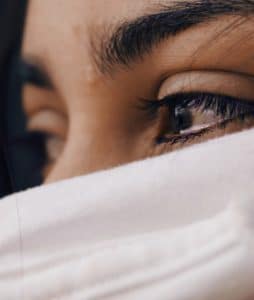
I was bullied relentlessly by seniors who were friends with my sexual abuser. Prank callers would tell me I was “fake” and messages on Myspace told me to kill myself, that if I had any “balls” I’d do what everyone was thinking and “end it all.”
After years of therapy, great college friends, and understanding boyfriends, I have been able to recover from this horrible trauma that occurred 10 years ago. Looking back, I really wish that I’d had a closer relationship with my parents. I never told them what was happening once I was enrolled in high school, because I was embarrassed and felt like they wouldn’t understand. I didn’t understand that something could have been done about the way I was being treated.
Age prey is common.
I had no idea how common age prey was until I scrolled through Twitter and saw many similar stories to mine. Younger women are preyed upon by older men, and they can be manipulated into believing that they are loved. Knowing who your children and teenagers are talking to online is extremely important for their safety.
Communication is key.
I was not a very expressive child. I intentionally pushed my parents out, and for that I suffered terribly. The most important message I can share from my story is that building your relationship with your children is IMPORTANT. Establishing trust and boundaries must start at an early age. Allowing your children to express themselves about what is happening at school without discouragement or punishment is mandatory in order to gain trust.
Ask questions and reassure them that you are there to help and listen. Consider establishing Dr. B’s #NoTechTuesdays, so your kids develop rich nonvirtual lives and don’t become too dependent on virtual communication. And please, keep trying to maintain an active relationship even when talking gets difficult.
Along with asking about specific friends and activities, relationship-building questions include:
- “How was your day at school?”
- “Did anyone hurt your feelings?”
- “Is there anything/anyone bothering you?”
- “If anyone is being mean to you, you can always tell me.”
- “Is anyone pressuring you?”
Teach your boys and girls that coercion is NOT consent.
Sexual coercion means using manipulation, pressure, alcohol, drugs, or force to have sex. It’s illegal. We’ve all heard that “no means no.” What if someone keeps pushing an intimate act and won’t give up? That is also a form of coercion. Not saying “no” is not consent. Consent is a sober and thought-out “yes” with the option to discontinue the activity at any time in the process. Educate your kids about the concept of coercion and consent. Basic sex education is not enough.

I’m the mom psychologist who will help you GetKidsInternetSafe.
Onward to More Awesome Parenting,
Tracy S. Bennett, Ph.D.
Mom, Clinical Psychologist, CSUCI Adjunct Faculty
GetKidsInternetSafe.com
Photo Credits
Photo by @szolkinon Unsplash
Photo by @louiscesaron Unsplash

